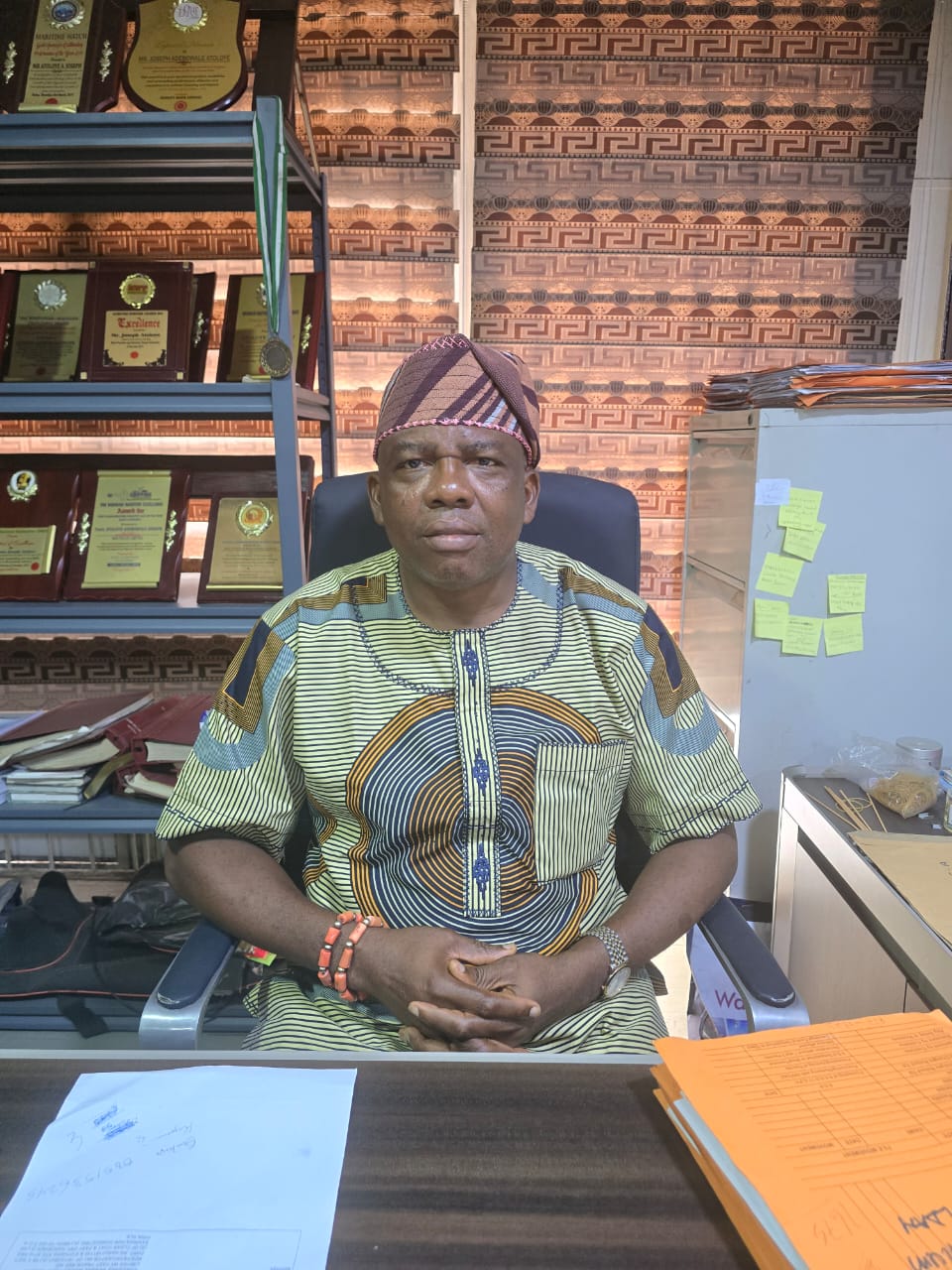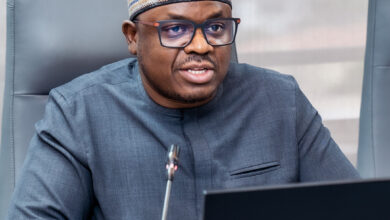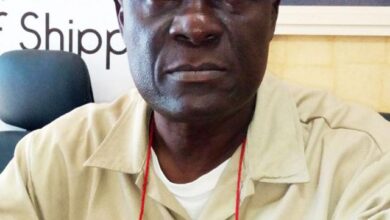INTERVIEW: Unpredictable Exchange Rate Affecting Trade Adversely – Atoloye, CEO WALTOLYE LIMITED

Maria Yusuf sat with Atoloye Adebowale Joseph, CEO of Waltolye Limited, a frieght forwarding company on the state of the industry and how the sector fared in 2024.
He also spoke on how unavailability of trucks impacted the logistics sector last year.
Excerpts
(Q) From your company’s experience, how would you describe 2024 as an operator in the maritime industry?
We are eternally grateful to God for seeing us through the unprecedented challenges that characterised the year 2024 in the maritime sector. It was indeed a trying period, but we are proud to say that we navigated through the turbulent waters and emerged stronger.
The year was marked by a multitude of challenges, not least of which was the trucking crisis that threatened to cripple our operations. The scarcity of trucks, coupled with the skyrocketing cost of haulage, made it increasingly difficult for us to evacuate cargo from the ports. This, in turn, led to a significant reduction in the quantity of jobs we cleared from the port, as importers struggled to cope with the escalating costs.The unfavorable exchange rates had a devastating impact on our operations. The rapid depreciation of the naira made it increasingly expensive for importers to bring goods into the country. As a result, many importers were forced to abandon their shipments, leading to a substantial decline in cargo clearance.
In retrospect, the year 2024 was a defining moment for us. It tested our strength, pushed us to the limits, and forced us to rethink our strategies. But we emerged stronger, and more determined than ever to overcome any obstacle that comes our way.
As we look to the future, we are filled with hope and optimism. We are confident that the challenges of 2024 have prepared us for the opportunities that lie ahead. We are committed to building on the lessons we learned, to leveraging our strengths, and to overcoming our weaknesses. We are grateful to God for guiding us through the stormy waters of 2024 and for positioning us for greatness in the years to come.
(Q) How is trade being impacted by unpredicted exchange rates?
The unpredictable nature of exchange rates is having a profound impact on global trade, with far-reaching consequences for economies, businesses, and individuals alike. As a critical component of international trade, exchange rates play a vital role in determining the economic fortunes of a nation. In the maritime sector, fluctuating exchange rates can have a devastating effect on trade volumes, revenue, and overall economic stability.
When exchange rates are unstable, it creates uncertainty in the market. This affects the cost of imports and exports, making it challenging for businesses to predict their revenue and expenses. For instance, if the exchange rate fluctuates wildly, importers may find themselves facing unexpected increases in the cost of goods, which can erode their profit margins and even lead to business closures.
(Q) What are the gaps you think Nigeria must fill to achieve efficient port system ?
To achieve an efficient port system, Nigeria must address several gaps that currently hinder the optimal functioning of its ports. Despite efforts by some port operators, such as PTML and Lekki Sea Port, to meet international standards, there is still much work to be done. The government needs to invest in infrastructure development, including the expansion of port facilities, modernization of equipment, and improvement of access roads. Additionally, there is a need for streamlined processes, and enhanced transparency to facilitate smooth cargo clearance and reduce dwell times.
Our government should focus on developing a more integrated and coordinated approach to port operations, involving all stakeholders, including port operators, shipping lines, customs, and other regulatory agencies. This would help to eliminate inefficiencies, reduce costs, and improve overall productivity. While some port operators, like APMT, are making efforts to improve their systems, there are still loopholes that need to be addressed. By filling these gaps, Nigeria can establish a world-class port system that supports economic growth, increases trade volumes, and enhances its competitiveness in the global market.

(Q) How has technology shaped freight forwarding in Nigeria ?
Technology has revolutionized the freight forwarding industry in Nigeria, transforming the way businesses operate and interact with their clients. Compared to the past, technology has significantly simplified the freight forwarding process, enabling professionals to accomplish tasks more efficiently and effectively. With the aid of technology, freight forwarders can now perform a substantial portion of their tasks from the comfort of their offices, eliminating the need for physical presence at various stages of the shipping process.
It is likely that freight forwarders will be able to complete their tasks 50 to 60% without having to leave their offices, relying solely on digital platforms and tools to plan and execute shipments. This shift towards digitalization is expected to increase productivity, reduce errors, and enhance the overall customer experience.
(Q) Compared to other ports of neighbouring African countries, do you think Nigeria is due to be a martime hub in the region?
I Will boldly say Nigeria is qualified. We have all it takes to be the biggest maritime hub in Africa and the world. I believe we have what it takes but the problem is that we have not gotten majority of our ports to the right standard. In terms of road networking ,most of the roads leading to ports are all in bad shape, and corruption is there on another hand. Although they’ve come up with the idea of building more seaports let’s see what will come out of it.
To achieve an efficient port system, Nigeria must address several gaps that currently hinder the optimal functioning of its ports. Despite efforts by some port operators, such as PTML and Lekki Sea Port, to meet international standards, there is still much work to be done.
The government should focus on developing a more integrated and coordinated approach to port operations, involving all stakeholders, including port operators, shipping lines, customs, and other regulatory agencies. This would help to eliminate inefficiencies, reduce costs, and improve overall productivity. While some port operators, like APMT, are making efforts to improve their systems, there are still loopholes that need to be addressed.
(Q) What is your view about Custom’s application of the B’Odogwu platform in place of NICIS II?
The introduction of the B’Odogwu platform by Customs, which is set to replace the NICIS II system, is a welcomed development in my opinion. While it’s not uncommon for new systems to experience problems, I believe that the B’Odogwu platform has the potential to offer improved efficiency like any new system implementation.There are likely to be some initial challenges and glitches that need to be ironed out.
Once the B’Odogwu platform is fully stabilized, I am confident that it will provide a more seamless and user-friendly experience for stakeholders. The Customs authority’s efforts to continuously improve and upgrade their systems are commendable, I look forward to seeing the benefits of the B’Odogwu platform once it is fully operational.











